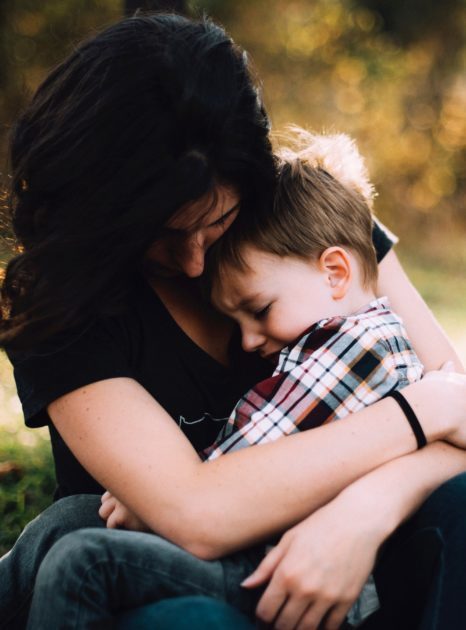
Finding Hope Looking Forward
The Benefits of Hugs and Handshakes
Today we continue to live with the many uncertainties the pandemic has invited into all our lives. These uncertainties cultivate many questions about our future.
One question I have been asked a lot lately is, “When this is all over, will we go back to shaking hands or will I ever feel comfortable giving and receiving hugs again”? As I thought about this concern, I tried to wonder what it would be like to live in a world with no human touch.
I remember not so long ago learning about a research that was done on premature babies in NIC Units. The study addressed the importance of human touch during the first several days after premature babies were born. The information gathered found that babies who had received consistent touch from another human (even through the gloves inserted into the incubators), showed higher daily weight gain and a higher survival rate. Another study followed children from ages 3-8 years old focusing again on the importance of human touch (sensory stimulation) during early childhood. This study revealed that the lack of consistent human touch contributed greatly to a delay in both mental and physical development, higher stress, illness, unlearned basic emotions and underdeveloped social skills. These studies made me really sad and very concerned about living in a world with no human touch.
Scientific data continually shows that for both humans and even animals to thrive, touch is essential.
Here are some more reasons why we shouldn’t throw away the thought of continuing hugs and handshakes.
Hugs and Handshakes (skin touch) releases a neurochemical called Oxytocin. This chemical activates the part of your brain associated with feelings of compassion and reward. The result…. greater bonding and relationship building. Maybe someday treated like family 😊
As children grow, human touch helps decrease violence and increases healthier bonding and social attachment.
Human touch helps increase feelings of safety and trust. It soothes us and calms cardiovascular stress.
Decreased disease and stronger immune system. Hugs are found to lower heart rates and blood pressure and help maintain a healthy number of white blood cells; thus, boosting the immune system.
Students who receive safe touch from teachers like a pat on the back, safe hug, or handshake are 3 times more likely to speak up in class and are more engaged in learning.
Human touch when compared to digital (video) communication contributes to a higher overall wellbeing which includes our mental, physical, and social health!
I don’t have all the answers to how we will trade in social distancing for hugs and handshakes, but the studies do indicate that we are healthier and happier people living in a world where human touch exists.
I hope you stay well and you are finding goodness in each day as we remain strong together through this difficult time. I would love to have a conversation with you or help in any way. Please don’t hesitate to contact me😊
Please share if you found this helpful!
References
Ardiel, E. L., & Rankin, C. H. (2010). The importance of touch in development. Paediatrics & child health, 15(3), 153–156. https://doi.org/10.1093/pch/15.3.153
Auvray, M., Myin, E., & Spence, C. (2010). The sensory-discriminative and affective-motivational aspects of pain. Neuroscience and Biobehavioral Reviews, 34, 214-223.
Paladino, M.P., Mazzurega, M., Pavani, F., & Schubert, T. (2010). Synchronous multisensory stimulation blurs self-other boundaries. Psychological Science, 21, 1202-1207
Wilhelm, F. H., Kochar, A. S., Roth, W. T., & Gross, J. J. (2001). Social anxiety and response to touch: Incongruence between self-evaluative and physiological reactions. Biological Psychology, 58, 181-202

